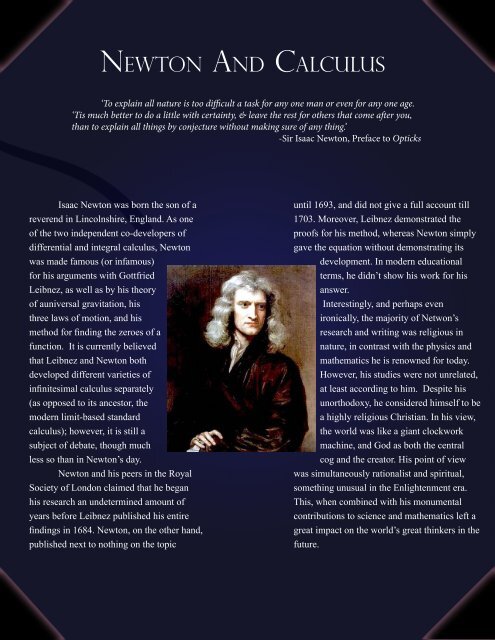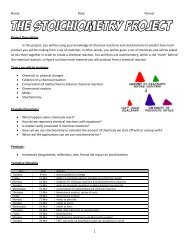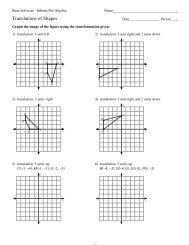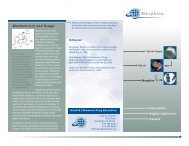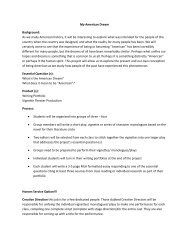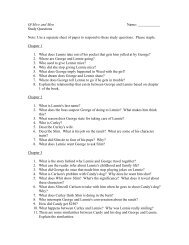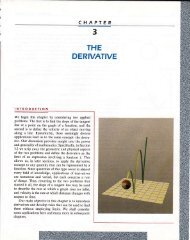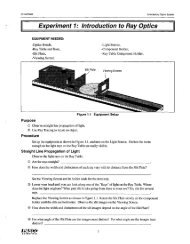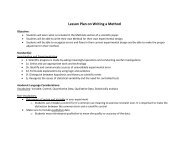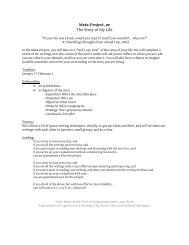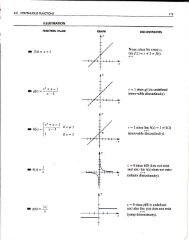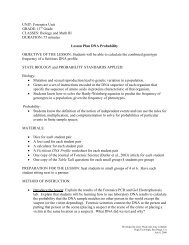2009 Calculus Book
2009 Calculus Book
2009 Calculus Book
You also want an ePaper? Increase the reach of your titles
YUMPU automatically turns print PDFs into web optimized ePapers that Google loves.
Ne w t o n An d Ca l c u l u s‘To explain all nature is too difficult a task for any one man or even for any one age.‘Tis much better to do a little with certainty, & leave the rest for others that come after you,than to explain all things by conjecture without making sure of any thing.’-Sir Isaac Newton, Preface to OpticksIsaac Newton was born the son of areverend in Lincolnshire, England. As oneof the two independent co-developers ofdifferential and integral calculus, Newtonwas made famous (or infamous)for his arguments with GottfriedLeibnez, as well as by his theoryof auniversal gravitation, histhree laws of motion, and hismethod for finding the zeroes of afunction. It is currently believedthat Leibnez and Newton bothdeveloped different varieties ofinfinitesimal calculus separately(as opposed to its ancestor, themodern limit-based standardcalculus); however, it is still asubject of debate, though muchless so than in Newton’s day.Newton and his peers in the RoyalSociety of London claimed that he beganhis research an undetermined amount ofyears before Leibnez published his entirefindings in 1684. Newton, on the other hand,published next to nothing on the topicuntil 1693, and did not give a full account till1703. Moreover, Leibnez demonstrated theproofs for his method, whereas Newton simplygave the equation without demonstrating itsdevelopment. In modern educationalterms, he didn’t show his work for hisanswer.Interestingly, and perhaps evenironically, the majority of Netwon’sresearch and writing was religious innature, in contrast with the physics andmathematics he is renowned for today.However, his studies were not unrelated,at least according to him. Despite hisunorthodoxy, he considered himself to bea highly religious Christian. In his view,the world was like a giant clockworkmachine, and God as both the centralcog and the creator. His point of viewwas simultaneously rationalist and spiritual,something unusual in the Enlightenment era.This, when combined with his monumentalcontributions to science and mathematics left agreat impact on the world’s great thinkers in thefuture.


